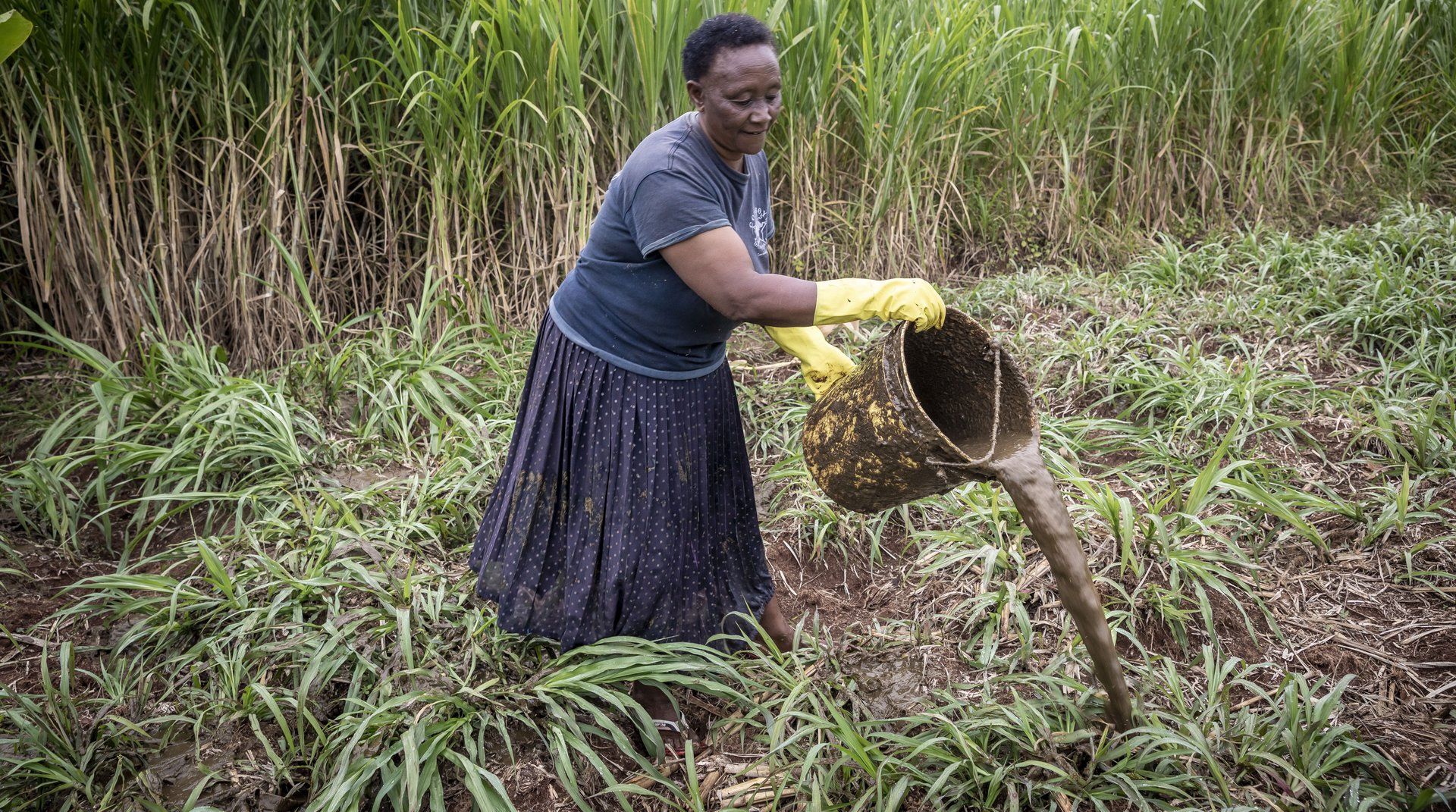

Funded by the Dutch Ministry of Foreign Affairs (DGIS), the Danish International Development Agency (DANIDA) and the European Union (EU), the African Biodigester Component (ABC) in Kenya aims at facilitating a shift of the biodigester market from its pioneering to the expansion phase where more than 20,000 small (0 to 50 m3) and 250 medium (50 to 500 m3) size biodigesters will be installed. The component is implemented by a consortium between GIZ and SNV (the Netherlands Development Organisation) in cooperation with Africa Bioenergy Programs Limited (ABPL - ex-Kenya Biogas Program).
The project objectives will be achieved by means of a well-balanced mix of demand-side, supply-side, financing and enabling environment interventions, geared at boosting demand and supporting biodigester companies in acquiring more clients.
This intervention area aims at strengthening the private sector’s capacity to provide high-quality biodigester technologies and services to its clients and to gradually expand their geographical reach and client base. Professionalization of the biodigester companies in Kenya shall be achieved by deploying technical assistance (TA) and tailored business development services (BDS), based on the specific needs of the small and medium-scale segment and relevant technologies. ABC focuses on defining the overall supply side strategy and on extending punctual TA to biodigester suppliers with regards to increasing biodigester penetration/uptake, as well as biogas utilization. For the medium-scale segment, the Project has also developed and in the process of carrying out a training on design and construction for small and medium scale biodigesters (focus on fixed dome model), including a component that enables companies to provide training on the biogas valorization. The Project works on identifying opportunities to involve new actors (investors, entrepreneurs, or companies from other sector with affinity to the sector (agricultural machinery, construction, etc.) that have the necessary structures to supply biodigesters at a larger (semi-)industrial scale, such as also acting as aggregators of the many individual artisans that have been trained in past biogas projects. They could act as distributors of prefabricated digesters for companies that are not present in the Kenyan market. Furthermore, the Project engages in providing market intelligence and support to local and international players that could be interested in establishing a local production for prefabricated biodigesters in Kenya. Based on the Lead Implementer Kenya’s knowledge of the market, the following considerations can already be raised for the two market segments:
A Result-Based Reimbursement (RBR) facility for domestic biodigesters is the core instrument of the African Biodigester Component (ABC). Through the provision of result-based reimbursements, ABC aims to provide the last push needed for the biodigester market to reach a critical mass of clients within Kenyan farmers. This is expected to enable suppliers of small-scale biodigesters to achieve economies of scale, the market to be firmly rooted in the expansion phase and become self-sustainable.
The goal is to support Biodigesters market development. This will be achieved through:
ABC through SNV will also be involved in capacity-building activities for county authorities to include biodigester and biogas in the county development planning. This activity will focus on 12 counties selected in a participatory manner.
In these counties, door-to-door consumer education activities will be led by ABPL through the biogas marketing hubs and existing demo farms. The project will also work through the energy, agriculture, and technical vocational training centres network.
The main objective is to increase the demand for small and medium scale biodigesters among the project’s target groups, stimulating their adoption, and maximising end-user benefits through the valorisation of biogas and other by-products, such as bio slurry and compost.
This will be achieved through various awareness creation activities targeting marketing hubs and the use of digital campaigns on social and mainstream medias, for the small scale segment, demand activation will be realized in two ways:
The medium scale segment’s demand activation will be realized in two ways:
Scope:
Specifications:
The A2F implementer aims to increase access to finance by utilizing existing and realizing new specific credit lines for SMEs and end-users in the biodigester sector in cooperation with international donors and (local) financial institutions, the A2F implementor will, in cooperation with local financial institutions, develop loan products specifically designed for smallholder and commercial farmers in order to increase their ability to pay. The lead implementers will help the A2F implementer to get a better understanding of the target group and the business case for biodigesters.
The expected outcome of the A2F implementer is increased access to finance for end users that would like to purchase a biodigester and increased working capital for enterprises active in the small scale and medium scale biodigester value chain, thereby contributing to increased and sustained supply and demand. The A2F implementer ensures that access to finance is increased for MSME active in any part of the supply chain, including importing, assembly, production, construction, auxiliary services, fuel preparation, software provision, maintenance and the end-users.
